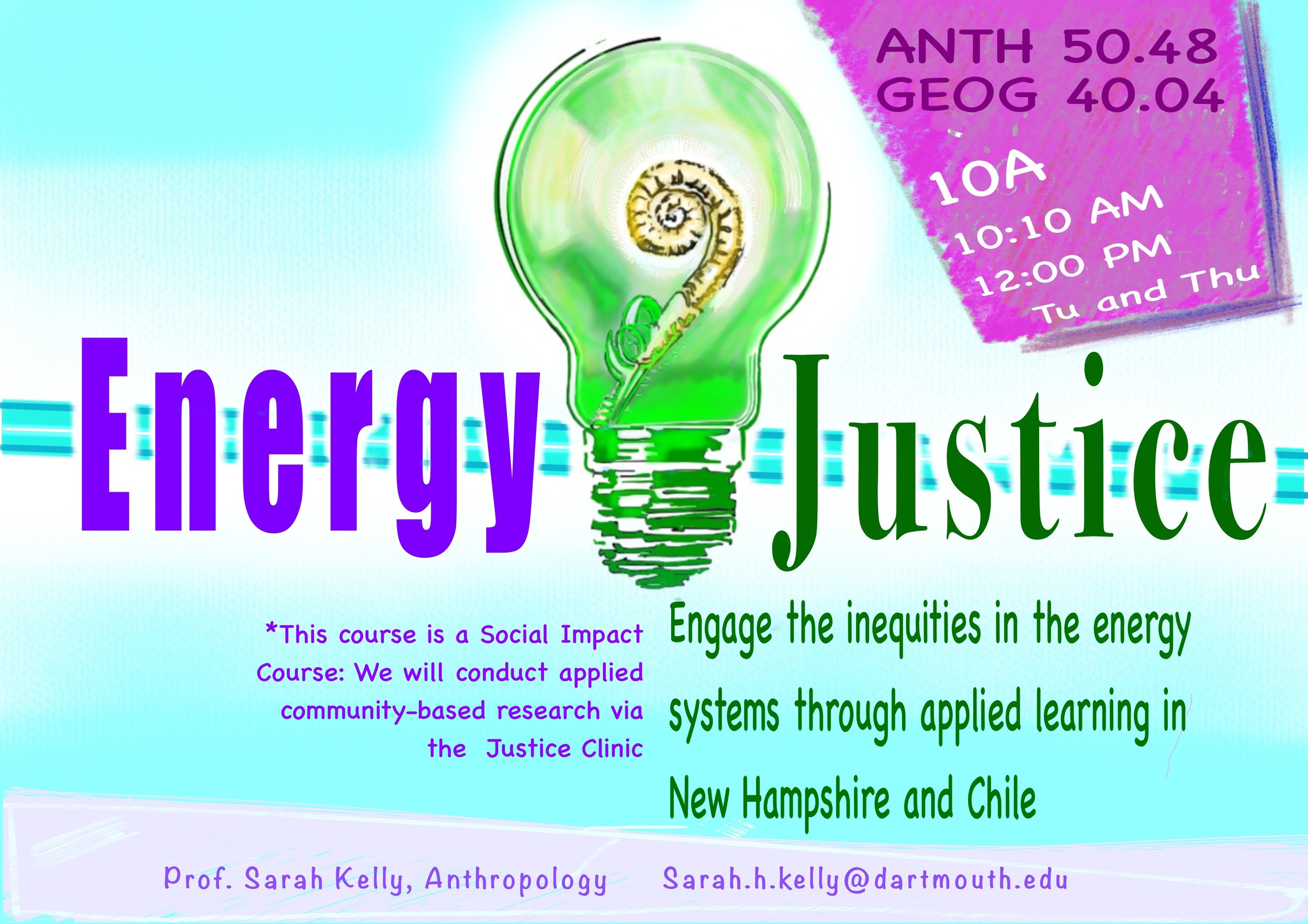Energy Justice: Pedagogy and Practice
In 2021, I co-founded the Energy Justice Clinic at Dartmouth with Dr. Maron Greenleaf. This experiential learning is led by community-identified problems. Dartmouth students, community partners, and faculty and staff collaborated to examine Energy Justice projects. Research collaborations are currently in New Hampshire, Vermont, California, the Willimapu Chile, and Norway. Below are a few images from the Clinic. The Clinic is really equal parts research and learning, which makes it an exciting and innovative experiment.
Co-Directing the Energy Justice Clinic at Dartmouth College
The Energy Justice Clinic and my Energy Justice Course offered in spring 2022 at Dartmouth College are part of community-based research projects with Dr. Maron Greenleaf. With student researchers, we engage energy systems to support them becoming more inclusive and equitable. At the same time, we are also envisioning energy futures.
In the Clinic, we support creating systemic change through improving research and data on energy issues with community partners, and informing policymaking. We are fortunate to have wonderful community partners in Hanover, NH with growing relationships throughout New Hampshire. Our second case involves Mapuche-Williche territory and a hydropower conflict involving Statkraft, a company owned by the Norwegian state. We plan to to work on energy justice in New England and support multiple international community-led projects on energy justice.
Latest work…
Mapping Hydropower Conflicts: A Legal Geography of Dispossession in Mapuche-Williche Territory
By Sarah H. Kelly
Abstract
In this article, I examine how hydropower projects in Mapuche territory both form part of internationally recognized approaches to develop renewable energy and also anchor colonial relations in rivers. In pursuit of energy development, water and ancestral cultural practices of the Mapuche Pueblo are being seized by a nexus of state laws and informal practices of private sector actors. Concurrently, Mapuche people assert their jurisdictions and experience resurgence of Indigenous lifeways through defending their waterways. Drawing on collaborative research guided by the Alianza Territorial Puelwillimapu, a Mapuche-Williche alliance convoked by ancestral leaders, I provide a methodological contribution to legal geography’s analysis of Indigenous rights. Bringing a legal geography approach to dispossession, I explain how collaborative mapmaking and systematizing the “layers of dispossession” provides a methodological approach to consider structural limitations to environmental justice on Indigenous lands. Overall, this case contributes to how we conceive of spatial justice in legal geography and in renewable energy development.
Social Lives of Energy: Energy Systems in Social Context
In Spring 2021, Sarah taught an undergraduate class at Dartmouth College that explores cultural relationships to energy systems. Syllabus and more info coming soon!






